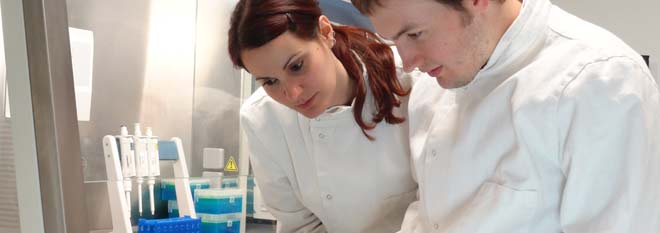Micro-technologies enable remote medical diagnosis
World-leading research at the University of Southampton is developing portable electronic devices that can assist in the diagnosis and treatment of patients with chronic conditions in their own homes.

Research challenge
There is a growing need for remote monitoring of patients and the ability to keep patients at home as much as possible. However, mechanisms and products are needed to enable clinicians to gather the appropriate data and provide patients with relevant and reassuring information to manage and treat their condition remotely.
Money spent in hospitals on emergency care and intervention can be saved by developing products that can target and identify early risk of chronic conditions.
The challenge was to develop tools that could provide greater flexibility and accuracy in remotely diagnosing and treating chronic conditions, make doctor and patient interactions more efficient, and reduce or eliminate the number of times a patients visits the doctor or hospital.
Context
Monitoring a patient’s well-being is an important aspect of managing a chronic disease, however rising treatment costs mean it is more beneficial and cost effective to monitor more and more people in their own homes. This can save an increasing amount of money that would otherwise be spent in hospitals on emergency care.
Our solution
Professor Hywel Morgan, in Electronics and Computer Science, has been working with colleagues in Medicine at the University and Southampton General Hospital to explore the latest advances in nanotechnology and micro-devices to deliver new remote therapies to patients.
Major multinational companies including Philips and Sharp Corporation, as well as the Engineering and Physical Sciences Research Council and the Technology Strategy Board, have invested millions of pounds of funding into the team’s research to develop new devices and sensors that can measure blood cells and markers of inflammation from a finger prick of blood.
These miniaturised diagnostic systems – Lab-on-a-Chip – are single platforms that integrate multiple analytical methods with micro-fluidic technologies and data analysis.
What was the impact?
Southampton's pioneering research into Lab-on-a-Chip technology has helped Philips create a better home monitoring system for patients undergoing chemotherapy. This will have particular use in the early diagnosis of neutropenia (loss of white blood cells) and improves the way in which cancer patients are monitored and managed. The system combines daily blood cell counts, physical parameters and electronic questionnaires to inform clinical practitioners and provide early detection of potential complications without the patient leaving their home.
A portable personal digital assistant (PDA) based system – Cheminformer – lets chemotherapy patients remotely upload their daily data that can then be accessed by a district nurse. This technology enables more effective treatment, improved quality of life and reduced numbers of readmissions to hospital. This product is currently being trialled by small cell lung cancer patients at Southampton General Hospital.
The University’s ground-breaking research into the use of miniature active matrix display technology for fluid control is having a similar impact with Sharp Corporation. The jointly-developed miniature electronic fluid-handling platform is being developed for use in clinical diagnostics, particularly for fast detection of viral and bacterial infections. Hywel has recently been awarded a Royal Society Industry Fellowship to work with Sharps Lab Europe on this project.

Find out more
Talk to our research team and find out more about this work. Professor Hywel Morgan, of the Biomedical Electronics group led the research on this project.